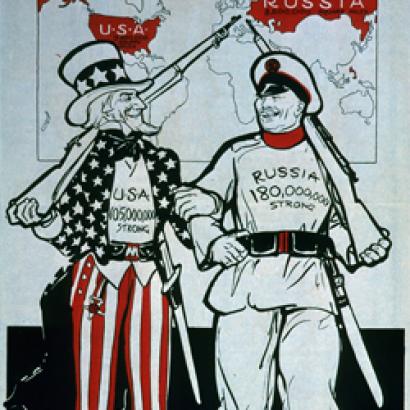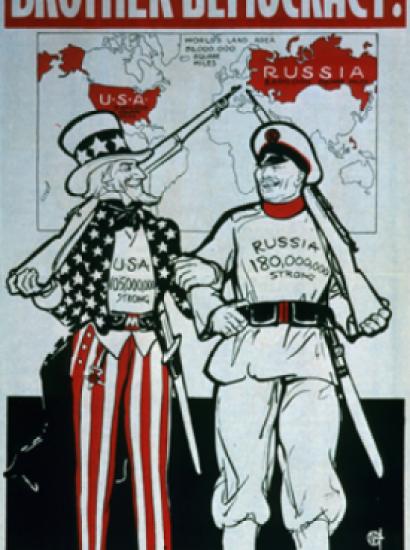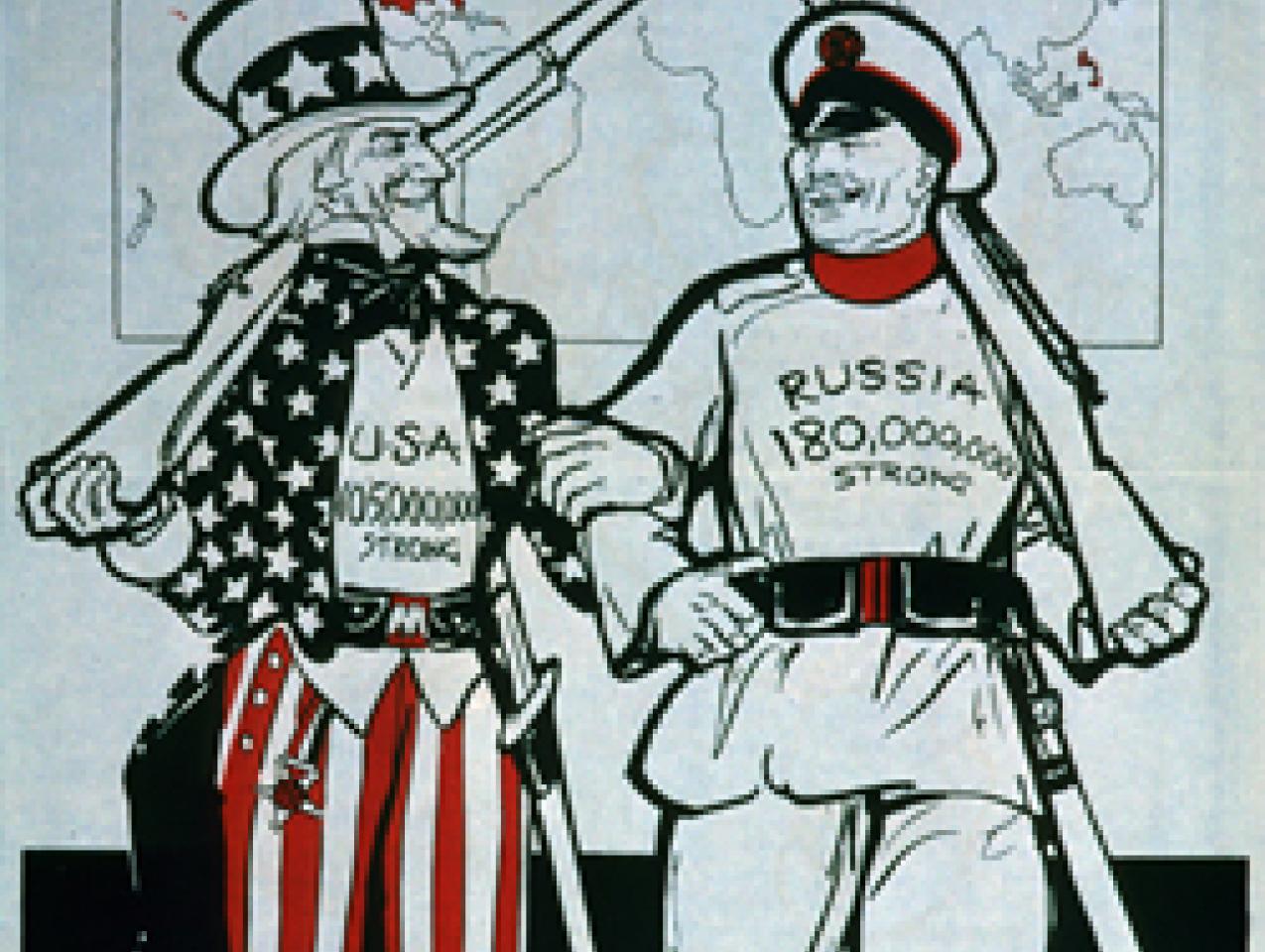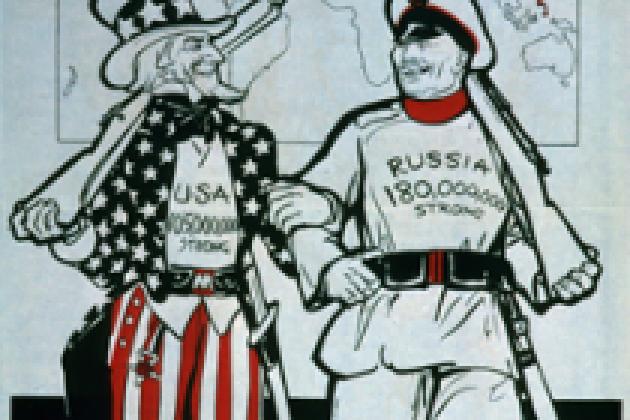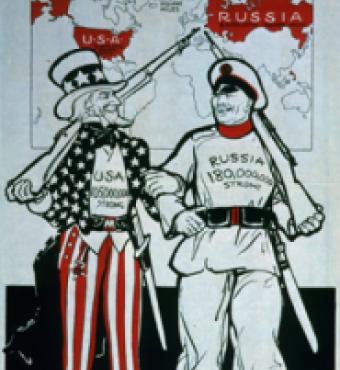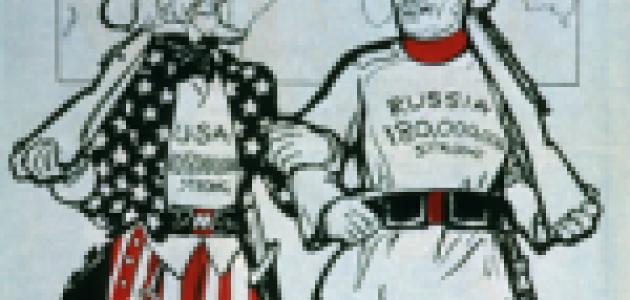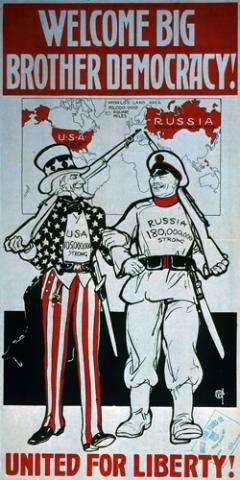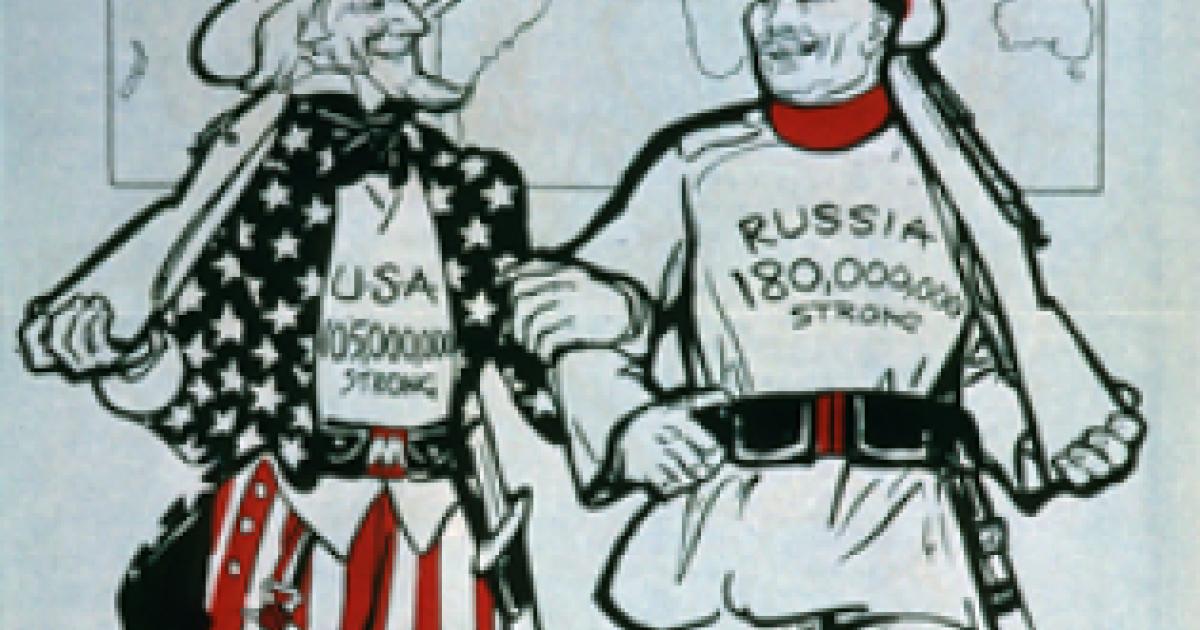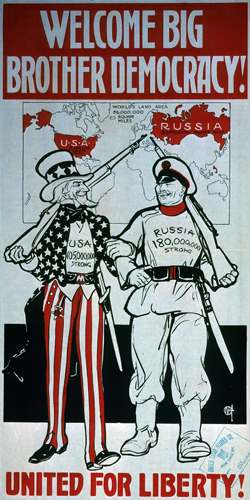
A fundamental problem we have in understanding the Russian penchant for self-destructive behavior is that Americans have never been jealous of other nations. Yet, jealousy is a major strategic factor (and not the least important one exciting Islamist extremism) and has been through the ages, whether we examine the eras of dynasties, empires or faltering democracies. With our vision confined by the narrow cult of “objective” analysis preached by twentieth-century academics and reinforced by Washington’s taste for the seemingly quantifiable and readily explicable, we have ignored the primary role of emotion, of fervor, in world affairs: From the classical age to our own, few states have gone to war based upon rational analysis, nor do “scientific” formulae reliably determine outcomes.
Simultaneously buffoonish and adept, Vladimir Putin befuddles our foreign-policy establishment. We cannot understand why he would act against what we perceive as Russia’s best interests or needlessly humiliate an American president eager to make one-sided concessions to Moscow. Washington sages will not entertain the simple fact that Putin enjoys beating the diplomatic daylights out of our president–and otherwise responds emotionally to a range of foreign-policy matters. While Putin is certainly capable of cold-blooded (and sometimes brilliant) thinking, he’s also intuitive, impulsive and sadistic–a character from Dostoevsky, not from Tolstoy. Putin is a classic schoolyard bully who sees President Obama as the nerdy kid with thick glasses and an armful of books. Putin delights in knocking the books to the pavement and bloodying our president’s nose, well aware that the president will still cough up his lunch money in the pathetic hope of making friends (add in ferocious Russian racism and the beating becomes almost a psychological necessity–Putin finds it a personal affront to have to deal with a non-white American president).
Yet, Westerners who view Putin as a mere thug dangerously underestimate the man. Putin has incredible strength of will (one could not travel the distance he has without it) and understands his own people as few American leaders today understand their fellow citizens. He may be the only major world leader in our time who is touched, if darkly, with genius–certainly, he had a crucial insight that eluded the great dictators of the last century: Putin grasped that human beings are not perfectible and need to blow off steam. So, where earlier strongmen bashed down doors to investigate private lives, Putin made a brilliant functional compact with his people: They can say or largely do whatever they like behind their front doors, but once they step through those doors into the street, they need to render unto Caesar (and “Czar” or “Tsar” is, indeed, derived from “Caesar”).
Why this focus on one individual, when the question posed is whether Russia is an enemy, neutral, irrelevant or a potential partner? (The answer to that query is “It depends...”) Because the czar is Russia to a degree that eludes our theories, and Putin is a czar. The relationship between czar and narod, the people, isn’t merely authoritarian, but mystical–even when the czar is a former mid-level KGB bureaucrat with an amusing taste for selfies. And the Russkaya dusha, the alternately effervescent and benighted Russian soul that haunts the country’s literature, is very dark when drawn onto the international stage. Nor is this merely a matter of paranoia–which is definitely endemic within “all the Russias.” Russia’s attitude toward the United States is best captured in an old folk parable, told with many variations but always with the same ending:
A poor Russian peasant’s neighbor has a cow, but the peasant himself has none. Every day the peasant has to walk by his neighbor’s field, where he sees that cow. He admires the cow, even adores it, envying the animal to the point of obsession. He even dreams about the cow at night. One day, the peasant goes into the forest to cut wood–and he finds a sprite bound to a tree with bonds that only a mortal can undo. The sprite promises the peasant that, if he frees her, she will grant him any one wish. So he unties her…and says, “Kill my neighbor’s cow.”
Anyone who has dealt with Russians–as I have, in the Kremlin and in back alleys–has known the feeling that his Russian interlocutor would lop off his arm to deprive the American of a finger.
The tragedy–which in true Russian spirit often veers into farce–is that Russia and the United States face many of the same threats and challenges: Islamist fanaticism, the rise of China, nuclear proliferation, the inflow of narcotics from abroad, and many lesser concerns. Yet, cooperation on these matters, by Russia’s choice, is limited or non-existent–even though each of these issues poses a more direct threat to Russia than to us.
Russia doesn’t really fear us–that’s hogwash. But Russians are infernally jealous of our position in the world, of our wealth, success and attractiveness as a system and a culture. Even as the United States longs to divest itself of the de facto empire it doesn’t want, the Russian will to empire remains ferocious, and Moscow reacts to its formerly Soviet neighbors with all the spite and fury of a jilted spouse. We see the Kremlin as unreasonable, while Moscow views Washington as simultaneously naïve and devious (Russians can’t believe we’re really as stupid as our international behavior suggests–there is always, always, always a conspiracy hidden somewhere).
Still, the guilt is not exclusively on the Russian side. The current U.S. administration, especially, cannot ever admit to a mistake–that Russia, on the opposite side of an issue, might be right now and then (as in Syria, where Putin warned early on of the rise of anti-Western jihadis wherever the regime lost power).
Nonetheless, there are occasional chances for cooperation. The destruction of Syrian chemical weapons, should it actually come to pass, would benefit Russia even more than the United States, so there’s some hope for continued cooperation on that issue (Russia has already experienced the use of poison gas by extremists). We seek the elimination of chemical weapons, and Russia doesn’t want them in Islamist (for instance, Chechen or Daghestani) hands. The danger is so immediate it facilitated a deal (albeit one with a number of tentative parts).
We also must beware of bad deals, of treaties for the sake of treaties, such as President Obama’s last Strategic Arms Reduction Treaty with Moscow, which sacrificed important American dual-use platforms, while the Russians gave up old junk they didn’t want anyway. Deals made in political desperation rarely wear well.
And patience–that most un-American virtue–is essential in dealing with Russia. Putin’s Achilles heel is his poor grasp of economics, and Russia, though currently solvent, faces a bleak future as global energy sources diversify and expand. The military Putin wants is already unaffordable, and, outside of a few showcase city centers, Russia remains an impoverished land. Putin prefers wealth from limited sources kept in a few hands--the easier to control the boyari–but the price has been a catastrophic failure to diversify the economy.
Another respect in which Washington exacerbated the worst qualities in the Russian temperament was the starry-eyed illusions with which Washington intellectuals approached Moscow in the early- to mid-1990s. Russians do not understand generosity; they understand evident strength. Dealing with Moscow is best done on a quid pro quo basis, not on the basis of giveaways of any kind. It is unlikely that the U.S. and Russia will become close allies in our lifetimes, but there look to be points of strategic convergence and we need not be enemies. We should appear willing, but never appear weak. In the end, though, it’s up to Russia to deal with its own geostrategic neuroses and psychoses.
Meanwhile, Putin’s Russia bears an uncanny resemblance to the Russia of a century ago, on the eve of the Great War: An autocratic government facilitates the concentration of wealth in favored hands and much of it is squandered abroad with jaw-dropping ostentation. Meanwhile, an anemic middle-class struggles to function within a corrupt system, and the common people continue to live in squalor.
This is not meant to predict a revolution, but to underscore how little in Russia changes, revolution or not. Russians never defeated the Communist system–they merely outlasted it. Now Putin is a near-perfect fit to rule the linguistic homeland of Nikolai Gogol.
We sprint and exhaust ourselves, until the Russian peasant stumbles past us.







